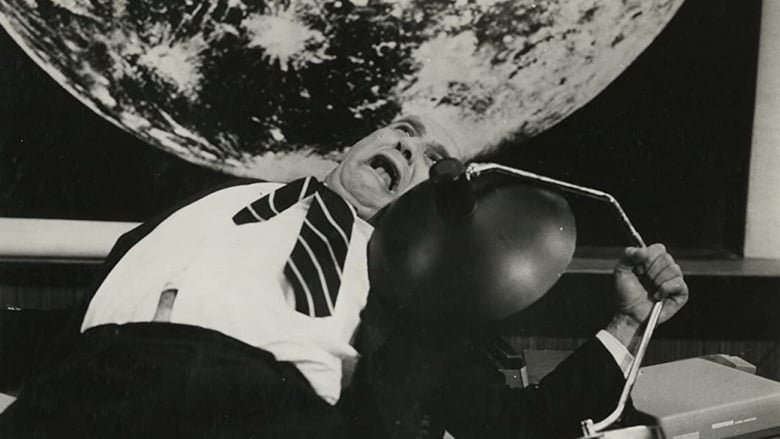
Unearthly Stranger (1963)
“Even if I had known what I know now, could I, or anyone, have held back… the terror?”
Over-wrought. Economical. Sweaty. And daft. Those are the four words which came to me after I finished watching Unearthly Stranger, a little known sci-fi horror film from the mid 60s, full of paranoia and bizarre (and cheap) ideas of how aliens could appear in our midst.
Imagine, if you will, that aliens are among us. They don't arrive by spaceship, as that would involve some kind of special effects. They don't look any different to us, as that would involve some kind of special effects. And they don't kill on-screen, as that would… oh, you've got the picture.
However, Unearthly Stranger is not as cheap and awful as it might sound. In fact, as paranoia-inducing stiffer-upper-lipped British science fiction goes (which isn't very far) it is rather splendid, with enough twists and stupidity to entertain anyone who can't think of anything else to do for the next 90 minutes.
The plot runs thus - a scientist finds out that his wife might be an alien. She is. How do we know this? Because she doesn't blink. Much.
That's about it.
And surprisingly, apart from the rather irritating point that you spend much of the film trying to see if the wife is actually blinking or not, Unearthly Stranger is a good example of its type. Lots of men smoking pipes wander around in tweed jackets expounding on the nature of the universe (they want to "harness the power of concentration" to travel through time and space, using "the force we call TP91"), and the whole thing has a dour Cold War era feel that's pure Brit.
The thing starts with a sweaty man running away from a strange noise, past the Houses Of Parliament (is there really no other landmark someone can run past to denote they're in London? It's becoming a bit wearing now, 200+ films in) and straight into a space research centre.
He starts a tape and begins to recount his tale of woe.
"John, in a little while I expect to die - to be killed by something you and I know is here. Invisible… moving unseen amongst us all. Even if I had known what I know now, could I, or anyone, have held back… the terror?"
Blimey. So begins the flashback. Professor Munro (a Scottish Warren Mitchell) lasts approximately 30 seconds after discovering a new formula, an "explosion" having taken place in his head. A similar thing has been happening to scientists in America and Russia, which is helping the Cold War no end ("they suspect us…").
An investigation into the death is started by Major Clarke (Patrick Newell, the bloke who played "Mother" in The Avengers), and Doctor Davidson (John Neville) is given the suddenly-vacated job. Davidson is our sweaty friend from the beginning of the film. He takes on the role manfully, but his stiff upper lip is wilted somewhat by a number of strange occurances. His predecessor's coffin turns out to be full of bricks, then it disappears completely. A chemical usually only found in space capsules was discovered in the dead man's body (before it vanished, presumably), and many conclusions about the danger everyone is in are hastily jumped to by all and sundry.
Meanwhile, we are introduced to Julie (Gabriella Licudi), his new wife. She sleeps with her eyes open, has no pulse, picks up piping-hot ovenware without the aid of gloves, cries tears which burn the skin off her face and can terrify entire playgrounds full of scarf-wearing under-10s without so much as… erm… blinking. And we are led to believe that our supposedly intelligent scientist hero put all this down to her coming from Switzerland. They didn't get out much in the 60s, obviously.
Full of glaring plot holes (it takes an awful lot more evidence to finally convince Davidson that his wife is not all she seems), Unearthly Stranger succeeds despite its limitations on a number of levels. You can't knock a film which has people leaping to enormous conclusions after back-of-a-fag-packet calculations (she doesn't blink, therefore she's obviously an alien being who has been projected onto their world by the power of concentration to stop us Earthlings from perfecting the same kind of technology! Of course! The only question is why they didn't think of it sooner!). The whole thing turns into a doomed love story ("I don't care where you have come from… you are what I love! I have only ever seen you as a woman, not as anything else!") with a great twist ending. Julie, as a supposed invader, confounds expectations as a being who actually seems upset about the job she has to do. But even greater, full marks have to go to the scriptwriters for making a "casserole" (that most middle class and British of meals) such a major plot device.
